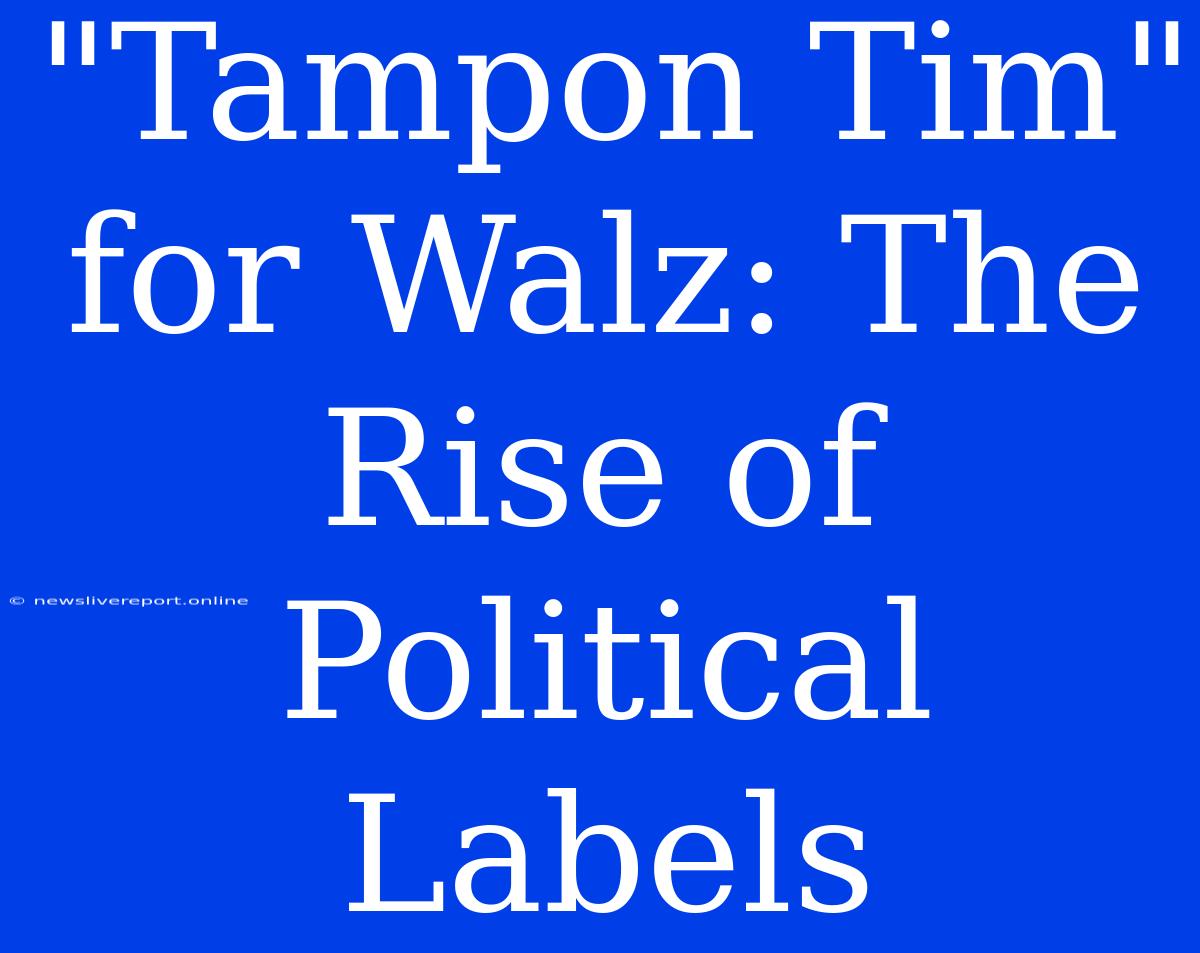"Tampon Tim" for Walz: The Rise of Political Labels
The 2023 Minnesota gubernatorial race saw a unique twist, with the emergence of a "Tampon Team" label aimed at Governor Tim Walz. While seemingly playful, this label carries significant weight, highlighting the growing trend of using catchy, often informal, terminology to define political stances and players.
But what does "Tampon Team" signify? This label, popularized by Republican candidates and supporters, references Walz's veto of a bill requiring parental notification for minors seeking gender-affirming care. Opponents framed this veto as a radical move, associating it with the broader "woke" agenda, and labeling the governor and his supporters as the "Tampon Team."
This incident underscores a broader phenomenon: the rise of political labels as a potent tool in shaping public perception. These labels, often catchy and easily digestible, serve as shorthand for complex policy positions and political alignments. They are designed to be sticky, easily shared, and remembered.
Here's why this trend is concerning:
- Oversimplification: Labels can reduce nuanced policy issues to simplistic, often polarizing, narratives.
- Dehumanization: They can dehumanize political opponents, turning them into caricatures rather than individuals with legitimate viewpoints.
- Echo Chambers: Labels can reinforce existing biases and create echo chambers where opposing views are marginalized.
The "Tampon Team" label raises critical questions about the future of political discourse:
- Is this type of labeling effective? Does it mobilize voters or alienate them?
- What are the long-term consequences of this trend? Will it further polarize society and hinder constructive dialogue?
- How can we foster a more respectful and nuanced political discourse?
Moving forward, it's crucial to be aware of the power of political labels. We must engage with these labels critically, seeking to understand their underlying messages and the potential impact they have on our political landscape.
The "Tampon Team" incident serves as a stark reminder that political language matters. It shapes our understanding of issues, influences our voting choices, and ultimately, defines our political culture.

